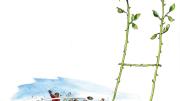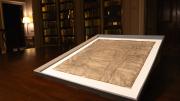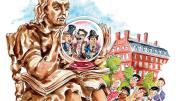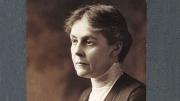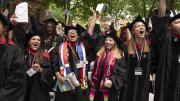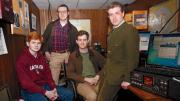1920
The Harvard football team, playing its first and last postseason game, defeats Oregon, 7-6, in the Rose Bowl.
1925
Five hundred students appear on January 10 for a final dinner in Memorial Hall before the University reluctantly closes the 50-year old “Commons,” a money-loser since the end of World War I. Plans for the hall’s future employment, say the Bulletin’s editors, will be “awaited with a lively interest.”
1930
Applications from members of the class of ’31 for places in Dunster and Lowell Houses (still under construction) far exceed the 168 spaces available.
1945
Harvard’s plans to help veterans complete their education include setting up a three-term calendar with 15-week semesters for the Law and Business Schools and one 12-week and two 16-week semesters for most of the rest of the University.
1970
As experimental co-residency begins in some undergraduate Houses, the Faculty of Arts and Sciences decides to defer a vote on the merger of Harvard and Radcliffe Colleges pending fuller investigation of the implications for both institutions.
1975
Construction of Pusey Library, which is intended to house rare books, maps, and manuscripts, has been completed after 20 months of excavation work in the south Yard. The cost of the building totals $7 million.
1980
The Corporation approves a 12.6 percent increase in tuition, room, and board, raising the total fee to $9,170, and making the cost of attending Harvard College second only to that of MIT.
1985
The two most popular classes of the year are Martin Feldstein’s Social Analysis 10: “Principles of Economics” and Michael J. Sandel’s Moral Reasoning 22: “Justice.” Newer courses and close runners-up include Science B-29: “Evolution of Human Nature,” affectionately nicknamed “Sex,” now taught by Richard W. Wrangham and Marc D. Hauser (and previously by Moore research professor of biological anthropology Irven DeVore) and Helen Vendler’s Literature and Arts A-22: “Poems, Poets, and Poetry.”
1995
Undergraduates and other Harvardians returning from their winter breaks discover that Elsie’s, the unpretentious Mount Auburn Street eatery that dispensed definitive roast-beef sandwiches for 39 years, has gone out of business.
2005
In a speech addressing the possible reasons for women’s underrepresentation in fields including mathematics, science, and engineering at elite research universities, President Lawrence H. Summers sparks a furor that goes global.
